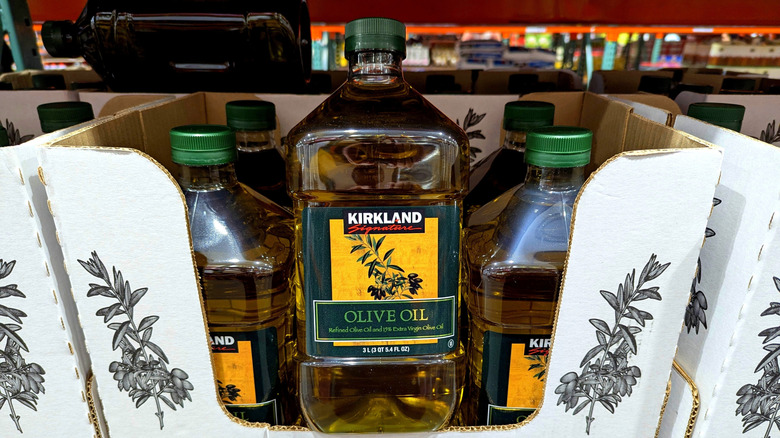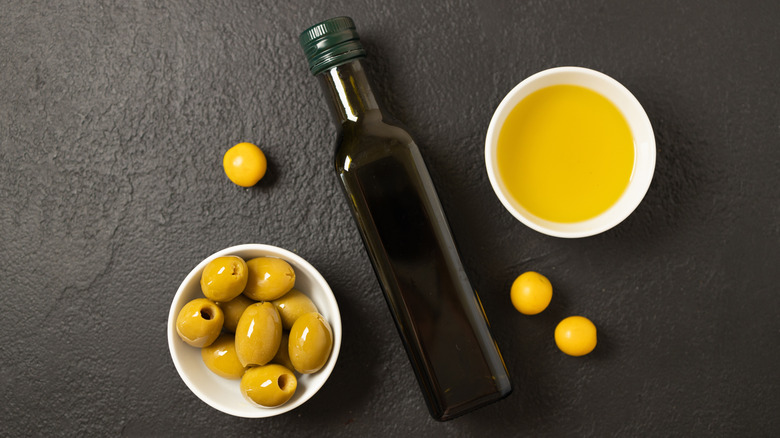Costco's Olive Oil Has A Major Packaging Problem
There are plenty of perks to shopping at Costco — its own brand, Kirkland Signature, has been pumping out quality goods at discounted prices for nearly 20 years. In fact, Kirkland makes up about 20% of Costco's entire merchandise. Sure, you're getting bang for your buck but sometimes the packaging leaves something to be desired — like Costco's impossible-to-open milk and Kirkland Signature's maple syrup. Unfortunately for olive oil lovers, Kirkland Signature fails here as well: The packaging is plastic, which isn't ideal for olive oil. Why? Well, first we need to look at the benefits of olive oil.
For one, olive oil is full of mono-unsaturated fats, which help maintain so-called good cholesterol, which may in turn reduce your risk of heart disease. Olive oil is also full of antioxidants. Now, that's all well and good, so what's the harm with keeping it in plastic? According to a 2014 study by the Journal of Food Science and Technology, polyethylene containers (aka plastic) and clear glass demonstrated the greatest loss of antioxidants out of the various packaging types tested. It should be noted that most olive oil is packaged in polyethylene terephthalate (PET) rather than regular polyethylene containers. However, a 2024 study by Molecules journal indicated that plasticizers may leach out of PET containers, especially over long-term storage. Additionally, per UC Food Quality, PET may allow more moisture and air to come in contact with olive oil than less porous packaging like metal.
Why dark glass or tin are the best container types for olive oil
Per that same 2014 study, dark glass and tin are the best containers for olive oil. They retain the most nutrients and have the lowest levels of oxidation. Glass is inert, which means it won't absorb anything, and nothing will be able to get through and leach into your olive oil. However, the glass needs to be dark (typically amber or deep green) to avoid exposure to light — one of the contributing factors to photo-oxidation, which can make the olive oil taste rancid.
Of course, tin works just as well but is less common outside of artisan products. Sure, you can buy a big vat of Kirkland Signature olive oil (it's a good deal, after all) and then dump it into your own containers, but you have no control over how long that plastic bottle sat in a warehouse — and thus, how the quality of the oil has already been affected. Look, we all know quality olive oil can be expensive. That's why we think it's a good idea to follow Martha Stewart's easy tip for saving money: Keep a cheaper, lower quality olive oil for cooking, and save the good stuff for drizzling onto food for flavor. This way, you get the benefits of using olive oil without the hefty price tag.

